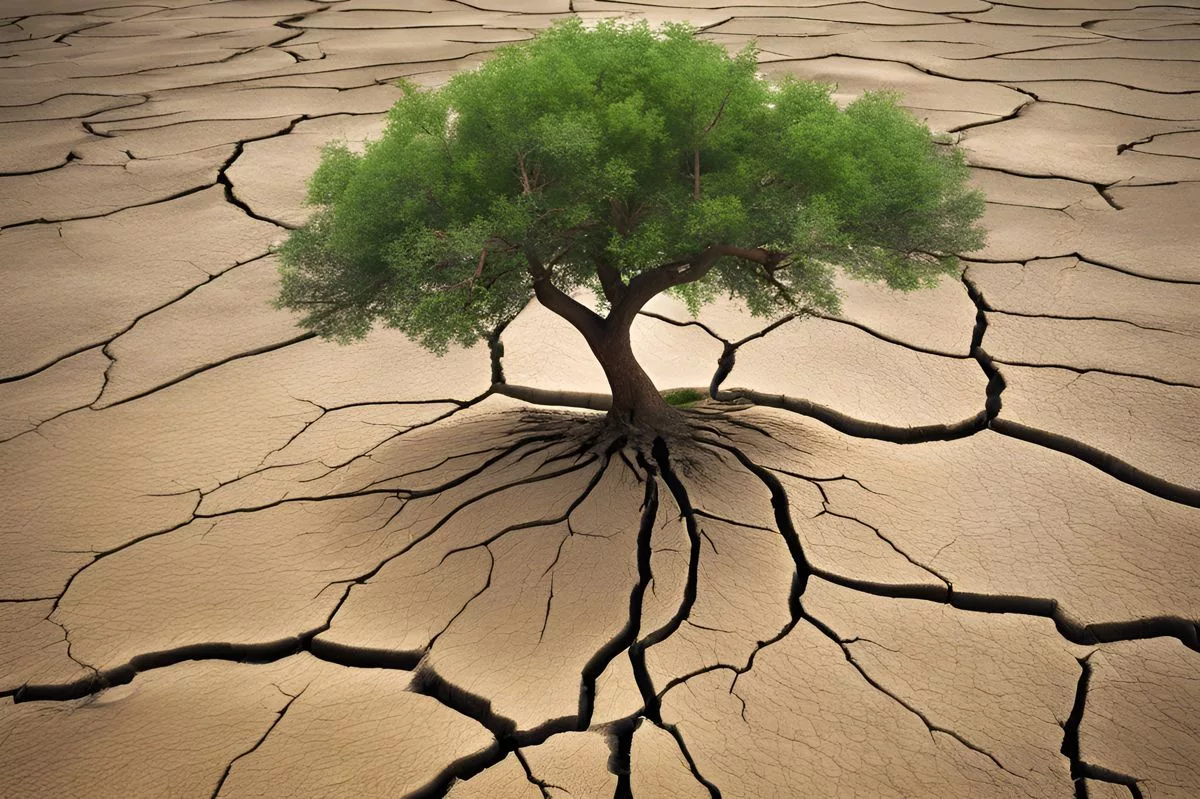The 10th Special Session of AMCEN demonstrated proactive and collaborative efforts towards enhanced environmental stewardship, where the participants discussed the escalating threat of drought and its humanitarian consequences. South Africa’s Minister of Environment, Dr. Dion George, highlighted the need for a cohesive African stance on drought and emphasized the importance of fulfilling sustainable development goals through financial commitments and innovative financing methods. Dr. George also acknowledged the crucial role of biodiversity conservation and the linkages among various environmental challenges, calling for globally applied strategies and a dedicated fund for implementation.
Drought is more than just an environmental anomaly. It is a humanitarian crisis with far-reaching consequences. Droughts have a disproportionate impact on communities already at risk, aggravating food and water shortages, amplifying poverty and hunger levels, and triggering conflicts and mass displacements.
Abidjan: The Epicenter of Environmental Diplomacy
The African Ministerial Conference on the Environment (AMCEN) convened its landmark 10th Special Session in Abidjan, a city renowned for its dynamic energy and a rich legacy of history, in September 2024. This significant gathering was attended by an array of distinguished personalities, including South Africa’s Minister of Environment, Dr. Dion George. The minister carried with him a deep respect for the warm Ivorian hospitality and a sober recognition of the untimely demise of his Botswanan counterpart, Minister Mthimkhulu.
In a spectacle reminiscent of a modern-era summit, Dr. George addressed an esteemed audience that included the likes of State Minister Seyoum Mekonen Hailu from Ethiopia, Ambassador Ms. Josefa Sacko of the African Union Commission, and a host of other eminent officials from African Member States, United Nations Agencies, and Civil Society.
The assembly’s pressing discourse centered on the escalating threat of drought, a crisis exacerbated by climate change. Dr. George candidly depicted drought as an insidious destroyer whose gradual encroachment endangers not only Africa but also the world, given its far-reaching socio-economic implications. The increasing frequency, severity, and intensity of droughts position them among the most devastating natural disasters confronting humanity.
Drought: A Humanitarian Crisis in the Making
Dr. George emphasized that drought is more than just an environmental anomaly. It is a humanitarian crisis with far-reaching consequences. Droughts have a disproportionate impact on communities already at risk, aggravating food and water shortages, amplifying poverty and hunger levels, and triggering conflicts and mass displacements. Despite the existence of early warning mechanisms and response strategies, Africa’s reaction to droughts is often reactive, not proactive, and lacks effective coordination, leading to detrimental outcomes.
In his address, Dr. George underscored the importance of a cohesive African stance on the urgent issue of drought. He expressed optimism about the capacity of the United Nations Convention to Combat Desertification (UNCCD) COP 16 to frame policy instruments addressing drought and its associated funding mechanisms. He reported that South Africa is already undertaking multi-sectoral initiatives that integrate biodiversity conservation with socio-economic development as key governmental priorities.
Financial Obligations and Sustainability Commitments
In his speech, Dr. George shed light on the convergence of environmental and socio-economic obligations undertaken under the Rio Conventions. He stressed that developed nations must persist in honoring their financial commitments to aid Africa in realizing its sustainable development goals. Concurrently, Africa should investigate innovative financing methods, blended finance, and unique investment strategies to fulfill the sustainability vision articulated in Agenda 2063.
The Interconnectedness of Environmental Challenges
The crucial role of biodiversity conservation in shaping our shared future did not escape Dr. George’s attention. The rapid decline in biodiversity, occurring at an unprecedented pace, constitutes a potential existential threat to our shared heritage. Implementing the ambitious Kunming-Montreal Global Biodiversity Framework, ratified at CBD COP15, necessitates significant investment of time, resources, cutting-edge technology, and well-informed decisions.
Dr. George’s proposition to concentrate on pollution, particularly chemical and waste management, demonstrates an understanding of the linkages among various environmental challenges. He acknowledged that combating plastic pollution is a priority for South Africa and the broader African region. He stressed the need for globally applied strategies that are economically viable and called for a dedicated fund to aid their implementation.
The 10th Special Session of AMCEN served as a testament to the proactive and collaborative efforts of environmental diplomats, expert panels, and representatives. On behalf of South Africa, Dr. George extended his gratitude for their hard work. As we navigate the crossroads of environmental stewardship, the pledges and discussions from these sessions embody a beacon of hope for a future that is not only sustainable but also inclusive.
1. What was the focus of the 10th Special Session of AMCEN?
The focus of the 10th Special Session of AMCEN was on the escalating threat of drought and its humanitarian consequences.
2. Who attended the 10th Special Session of AMCEN?
The 10th Special Session of AMCEN was attended by an array of distinguished personalities, including South Africa’s Minister of Environment, Dr. Dion George, State Minister Seyoum Mekonen Hailu from Ethiopia, Ambassador Ms. Josefa Sacko of the African Union Commission, and a host of other eminent officials from African Member States, United Nations Agencies, and Civil Society.
3. Why is drought considered a humanitarian crisis?
Drought is considered a humanitarian crisis because it has a disproportionate impact on communities already at risk, aggravating food and water shortages, amplifying poverty and hunger levels, and triggering conflicts and mass displacements.
4. What financial commitments are needed to fulfill sustainable development goals in Africa?
Developed nations must persist in honoring their financial commitments to aid Africa in realizing its sustainable development goals. Concurrently, Africa should investigate innovative financing methods, blended finance, and unique investment strategies to fulfill the sustainability vision articulated in Agenda 2063.
5. What is the crucial role of biodiversity conservation?
The crucial role of biodiversity conservation in shaping our shared future did not escape Dr. George’s attention. The rapid decline in biodiversity, occurring at an unprecedented pace, constitutes a potential existential threat to our shared heritage.
6. What is the importance of globally applied strategies to combat environmental challenges?
Globally applied strategies are needed to combat environmental challenges, including pollution, particularly chemical and waste management, and plastic pollution. These strategies should be economically viable, and a dedicated fund is necessary to aid their implementation.








